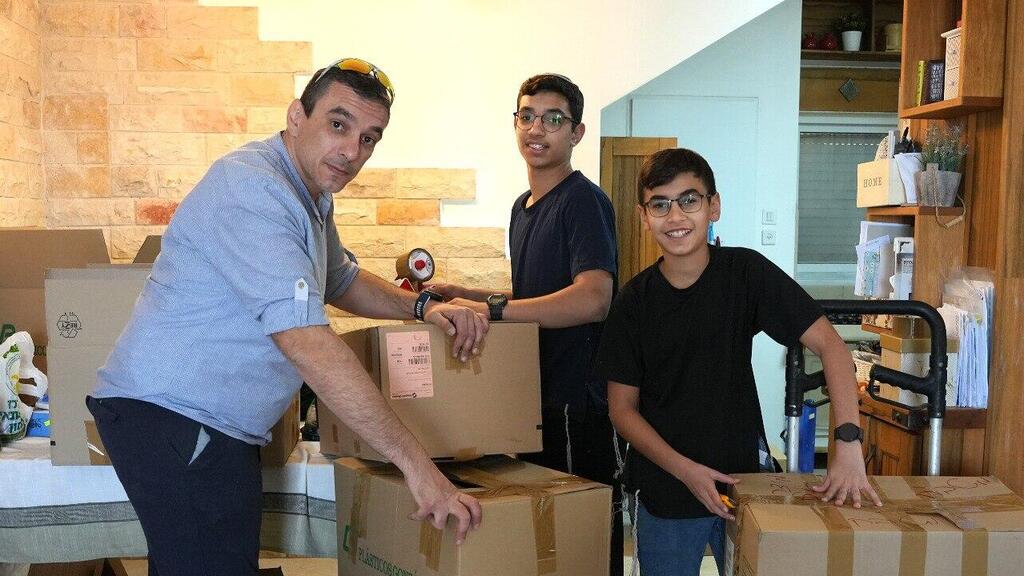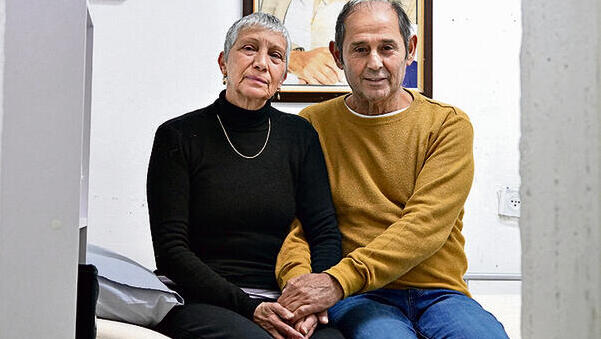After three months of moving from place to place, on Tuesday the Hayut family - Ami, Hodaya, and their four children - left the hotel where evacuated civilians have been staying following the Hezbollah threat in the northern Israeli border.
Read more:
The family will embark on a new, no less daunting, journey. "We need to rebuild our family, build a normal life," says Hodaya ahead of the move to the city of Harish in the center of the country.
Until now, they have been living in a hotel that was fully occupied, to the extent that just two weeks ago the children were staying at the end of the corridor, six rooms away from their parents. "We became very attached to other evacuated people in the previous hotel; they became partners in our difficult journey, and it's not easy for us to part. But we are eagerly looking forward to starting new lives somewhere else because we understand that this will be a very long process, and there is no choice," they say
The six members of the family are among the 21,000 residents of Kiryat Shmona, the largest city near the border with Lebanon, who evacuated - leaving only 3,000 remaining in their homes. On Monday afternoon, a rocket fell on a road in the heart of the city. There were no casualties, but for Ami and two of his children, Yonatan and Neria, it was not just another headline on the news sites. They arrived in the to assist the moving company in transporting belongings from their home to Harish, "and immediately upon our arrival, a rocket fell less than 100 meters away from us," Ami says.
"If I were still waiting at the red light, it's reasonable to assume that we would have been hit by shrapnel. The car behind us was hit by fragments, and its windows shattered. So, with a heavy heart, I made the decision that my children would not return to such a reality, no matter the price we had to pay. We will not return to the policy of appeasement or a policy that allows terrorists to approach the border. It will not happen."
The voice of the remaining minority in the city wishes to be heard loud and clear - Eti Hai and Eli Davidi. "On October 10th, my birthday, we fled from here fearing a Hezbollah attack. But a week later, we returned because I couldn't stay away from home any longer," Eti says.
She has been living in Kiryat Shmona since immigrating to Israel in 1963, and she stayed during wars and security escalations in the north. Now, she emphasizes, things are not going to change. "I am approaching the age of 70," she said. "Being away from home for so long is impossible; it's very difficult. Three of my children and ten grandchildren moved to apartments they rented in the center of the country, and it reassures me that they are safe. Every weekend, I travel to visit them."
They radiate a resilient spirit, but a glimpse into their home leaves no room for doubt: the routine is a wartime routine. Nights are spent in underground shelters, and the massive bomb shelter on the ground floor is filled with provisions and supplies for an extended stay. "We very rarely leave the house and feel safest here," they say.
Through the window of their home and at the shelter exits, they have already encountered moving companies loading the belongings of entire families. "I think it's right that young families will find apartments, and the children will be able to start fresh, even though it's not a suitable routine," Eti says. "But I'm sure they didn't leave forever; they will come back after the war when everything here returns to normal. Even if it takes half a year or even a year, everyone will realize there's nothing like Kiryat Shmona. The absolute majority will return here."





